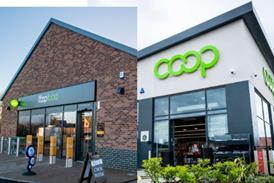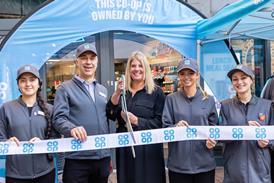Killer contacts
In our fourth Mint Condition training module, in association with The Wrigley Company, Duncan Bannatyne examines how to get the most out of your relationships with suppliers and manufacturers
ALREADY HAVE A REGISTERED USER ACCOUNT? PLEASE LOG IN HERE
To read the full story join the ConvenienceStore.co.uk community today!
Registration is quick and easy and provides access to:
- Unlimited ConvenienceStore.co.uk articles
- Our great range of newsletters
- Content you’ve saved for later via the ‘my library’ feature
And much more…

























